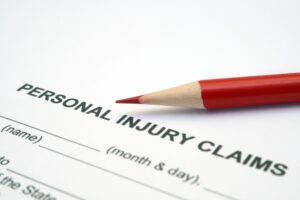Can I Still File a Personal Injury Claim if I Signed a Waiver in Massachusetts?

At some point in your life, you have probably signed a waiver or a release form. We generally sign these waivers before we engage in potentially risky activities, such as skiing, skydiving, or high-contact sports. Whatever the case may be, you may be wondering how enforceable these waivers actually are. If you become injured, are you totally prevented from pursuing any legal action whatsoever?
The subject of whether waivers are enforceable has been the source of considerable debate in courts across the nation. Some judges may take the opinion that a plaintiff should be allowed to file an injury claim regardless of whether they signed a waiver or not. Other judges feel that waivers should be fully enforced in all situations. Some states have banned liability waivers altogether. If you have suffered an injury after signing a waiver, you may be unsure of how toproceed.
Regardless of whether you have signed a waiver prior to your injury, it always makes sense to consult with a legal expert before taking action. When you sit down and go over your options with a qualified personal injury attorney, you can develop a clear plan on how to proceed. Reach out to an experienced personal injury attorney in Massachusetts, and you stand a much better chance of reaching a favorable legal outcome.
Liability Waivers are Becoming More Common
Due to COVID-19, liability waivers are becoming increasingly common in Massachusetts. Many businesses are asking customers to sign waivers that prevent them from taking legal action after contracting the virus while on their premises. This has sparked a new round of debate over the enforceability of waivers like these.
Are Waivers Enforceable in Massachusetts?
Generally speaking, waivers and liability releases are enforceable in the state of Massachusetts. That being said, waivers only go so far, and they do not protect a party from all legal action. If parties commit acts of gross negligence, recklessness, or intentional harm, they will likely be prosecuted to the full extent of the law, regardless of any waivers in place. This is because these acts of gross negligence are said to go beyond the normal scope of negligence. If a plaintiff suffers serious injury or death, the waiver is not likely to hold up in court – especially if grossnegligence was involved.
When Does a Waiver Become Invalid?
In addition, there are many factors that might make a waiver completely invalid in court. Parties must be very careful when drafting waivers because small errors can invalidate them. Here are some examples:
● Missing signatures
● Unreasonable requests
● Unclear language
● Signed under duress
● Signed by a minor
Enlist the Help of a Qualified Attorney Today
Connect with a qualified attorney in Massachusetts, and you can approach this situation in an efficient, confident manner. If you have signed a waiver, you may still have the chance to pursue a personal injury claim in court or settle with an insurance company for a considerable sum. If you have suffered a serious injury, it makes sense to give this your best shot. Reach out to the Law Offices of Johnson, Sclafani & Moriarty, and we will fight for your rights. Contact us now to set up a free, initial consultation. 413-732-8356